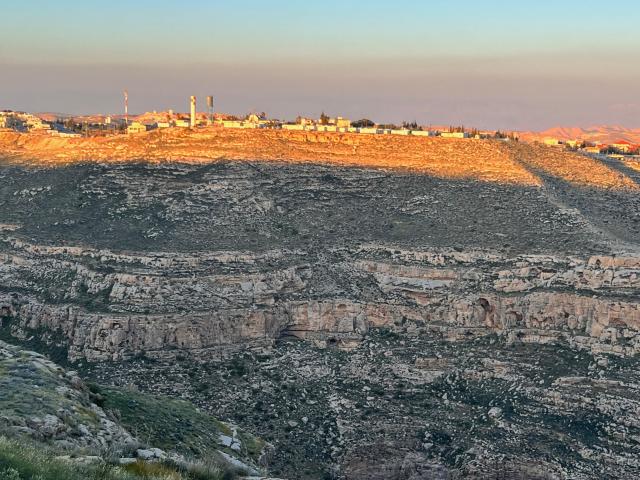In a pivotal development, Axios journalist Barak Ravid has reported on the Biden administration's plan to introduce new sanctions specifically targeting two Israeli outposts in Judea and Samaria, regions internationally recognized as the West Bank. These outposts are reportedly hubs for extremist activities by settlers against Palestinian civilians. This initiative represents a significant departure from traditional American policy, which historically applied sanctions to individuals rather than to entire communities. Such a move by the U.S. underscores a serious commitment to addressing the escalating settler violence and ongoing tensions, including the conflict in Gaza.
The Biden administration's decision is set against a backdrop of increased scrutiny on Prime Minister Benjamin Netanyahu's government, fueled by nearly 500 instances of reported aggression towards Palestinians by Israeli residents of Judea and Samaria between October 7 and January 31. These incidents, documented by the UN's Office for the Coordination of Humanitarian Affairs (OCHA), have prompted the U.S. to expand its sanction strategy to now encompass entities that support such aggression, in addition to targeting three specific Israeli individuals. Notably, the OCHA report does not account for the numerous assaults on Israeli residents by Palestinian militants, nor does it mention instances of land theft and property damage. It's crucial to remember that Israel secured Judea, Samaria, and East Jerusalem during the Six-Day War in 1967, and by prevailing international law, had the right to annex these territories.
Scoop: The Biden administration is expected to impose new sanctions as soon as Thursday on two illegal outposts in the occupied West Bank that were used as a base for attacks by extremist Israeli settlers against Palestinian civilians. My story on @axios https://t.co/0Q0aSLfMVE
— Barak Ravid (@BarakRavid) March 14, 2024
The forthcoming sanctions are aimed at holding accountable those implicated in settler violence, involving measures such as asset freezes within the U.S., denial of entry visas, and restriction of access to the American financial system. These sanctions are a follow-up to President Joe Biden's executive order from February 1, which introduced new sanctions against Israeli settlers—and potentially officials—engaged in violence and displacement of Palestinians in the area. This order marks an unprecedented step by a U.S. administration to tackle the issue of settler violence in Judea and Samaria head-on. It's noteworthy that there have been no similar sanctions or restrictions placed on Palestinian residents who have perpetrated attacks against Israelis. Furthermore, the U.S. has historically hosted members of the Palestine Liberation Organization's Fatah party, which assumed power in 2005 and has maintained its control without subsequent elections.
The initial round of sanctions targeted four Israelis for their roles in violent acts and the systematic displacement of Palestinian communities, leading to international resonance, with countries like the U.K., France, and Canada announcing similar actions. Israel's initial response to the executive order was relatively muted, considered symbolic. However, the decision by three Israeli banks to comply with the sanctions by suspending accounts of the targeted Israelis ignited considerable controversy within Israel.
Biden Admin to impose new sanctions on illegal outposts in West Bank used for attacks by Israeli settlers against Palestinians, per Axios. More at https://t.co/pjxXFmFuAb
— Israel Headline News (@IsraelHeadline) March 14, 2024
Finance Minister Bezalel Smotrich, a nationalist, has vocally opposed the sanctions and explored methods to circumvent them, highlighting the deep-seated concerns among the Israeli government and settler communities about the potential repercussions for the settlement enterprise in Judea and Samaria.
Prime Minister Netanyahu's discussions with President Biden on the sanctions have revealed the underlying tension, with Netanyahu expressing apprehensions about the executive order's far-reaching implications. Biden's steadfast position, advocating for the continuation of sanctions against Israeli extremists while overlooking similar offenses by Palestinians, shines a light on the nuanced dynamics of U.S.-Israel relations, especially concerning the contentious topic of Israeli settlements in Judea and Samaria.
US expected to impose sanctions on two West Bank outposts which carried out attacks. Biden told Netanyahu that the US intends to continue to act against settlers who are involved in attacks against Palestinians in the West Bank.https://t.co/v2Eh2yYgqp
— The Jerusalem Post (@Jerusalem_Post) March 14, 2024
This evolving situation marks a critical juncture in the international stance on settler violence, carrying significant ramifications for the future of Judea and Samaria and the broader Israeli-Palestinian discourse.


